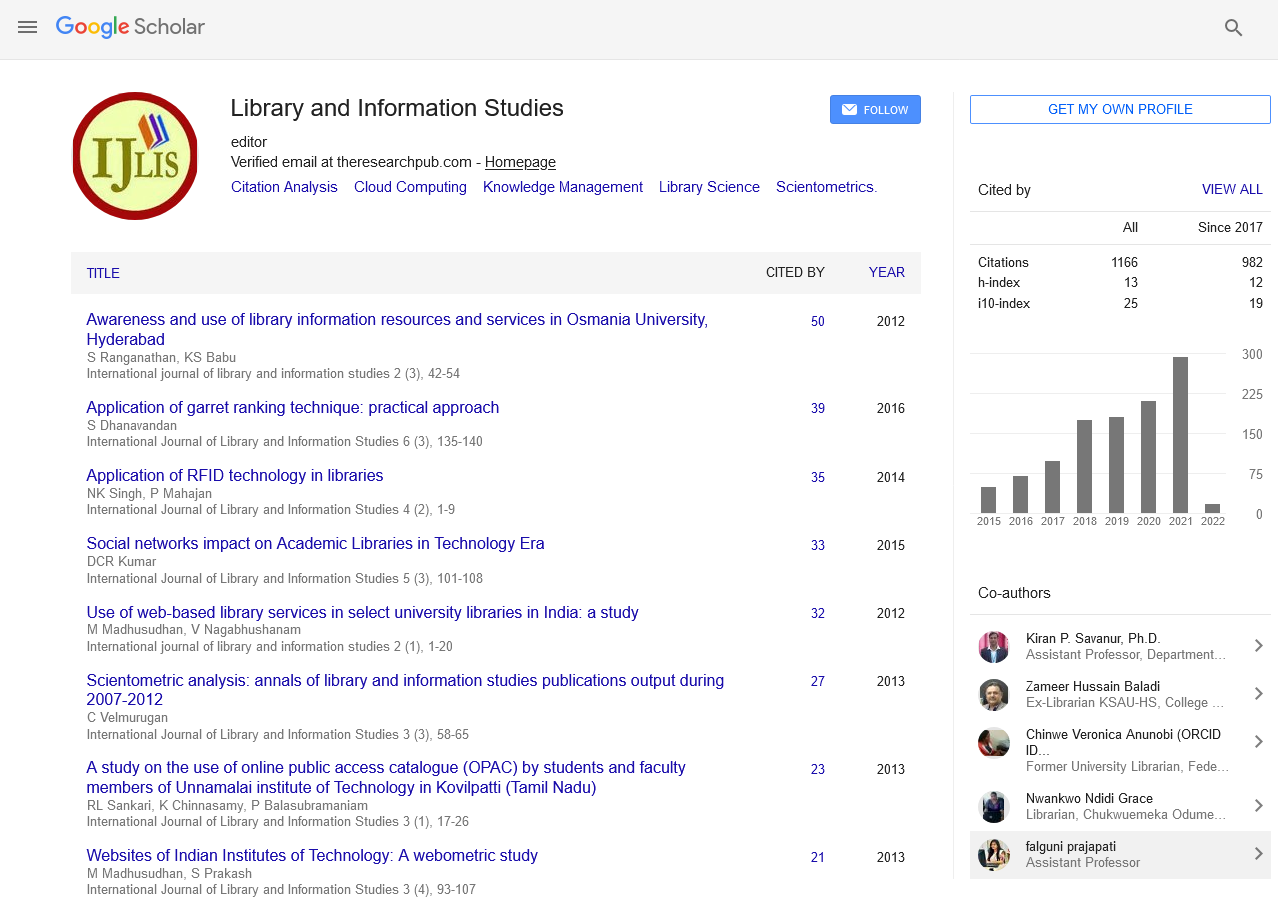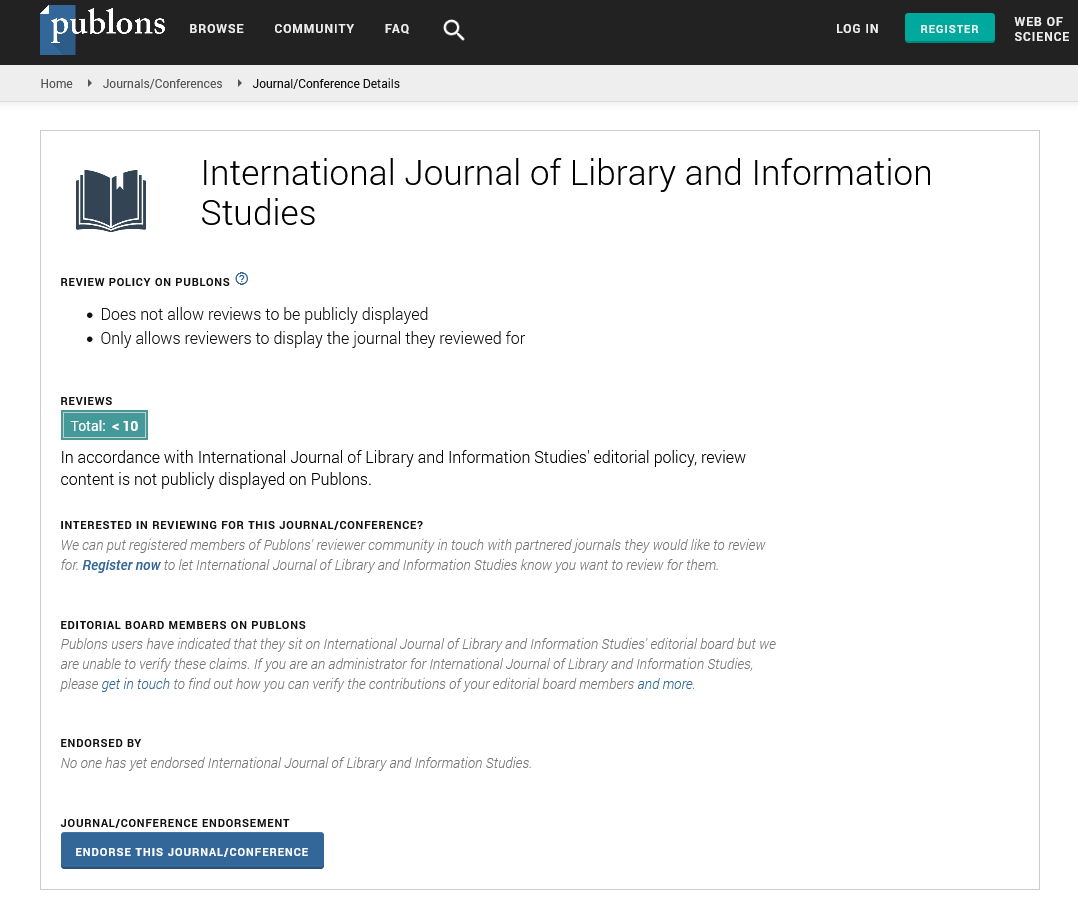

Library Search Engines and Library Gateways for Effective Legal Education: Implication for The University of Calabar Faculty of Law Library
Abstract
Author(s): Pius Tom Umoren
This study examined library Search Engines and Gateways for effective legal education, implication for the University of Calabar Law Library. The sample population consisted of levels three and four students who are registered in the Law Library. A structured questionnaire was employed for collection of data. The study was designed to determine the extent of availability and utilization of library search engines for information access and retrieval for effective acquisition of legal knowledge in 10 core law courses. From the survey conducted and data gathered from respondents who make use of the Law Library, findings showed that the Law Library had, as at the time of this study, six (6) out of the 10 selected search engines for this study. It was also discovered that students made heavy use of the available search engines with those for Criminal Law and Law of Evidence being the most heavily used in online search for legal information. The study revealed that the major problems that militated against availability and use of the search engines in the Faculty of Law Library included lack of regular subscription for access and eratic power supply
Call for Papers
Authors can contribute papers on
What is Your ORCID
Register for the persistent digital identifier that distinguishes you from every other researcher.
Social Bookmarking
Know Your Citation Style
American Psychological Association (APA)
Modern Language Association (MLA)
American Anthropological Association (AAA)
Society for American Archaeology
American Antiquity Citation Style
American Medical Association (AMA)
American Political Science Association(APSA)



